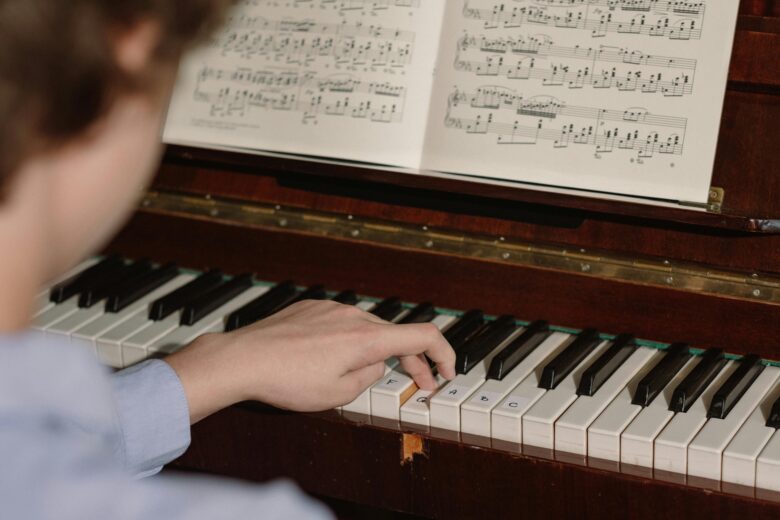Back in high school, I took classical piano lessons at the San Francisco Conservatory’s pre-college Preparatory Division. All in all, this was a rich and inspiring experience. Over two and a half years, I worked closely with two accomplished Conservatory piano teachers. At the time, the Conservatory was in a building in San Francisco’s Sunset District. I spent hundreds of hours practicing in the building’s various practice rooms, the sound of pianists, opera singers, and violinists in rooms around me. I sampled a treasure trove of recordings and scores at the music library. And I participated in Saturday morning workshops with other student performers.
On one such Saturday morning, I witnessed a breathtaking performance of a late Beethoven Sonata. The student pianist, who was around my age, seemed like a musical God-in-Training. I was enthralled by his playing. I was also depressed thinking I would never be able to match his abilities. This was not uncommon for me at the time. Though I thrived musically, I struggled with feelings of inadequacy, relentlessly comparing myself with other students and worrying about not being good enough. I also frequently lamented starting serious piano study “too late.”
Fortunately, these thoughts didn’t stop me from learning. I practiced more than ever and made quick progress. Despite self-doubts, I optimistically grew my skills, laying a foundation to become a professional musician. Later as an adult, I worked on shifting my mindset to counter old habits of negative thinking.
Now, as a piano teacher, I do all I can to help other piano learners adopt a positive learning mindset. My experiences–especially the challenges–taught me that there is more to piano learning than studying notation symbols and gaining playing abilities. Psychology plays an important part, too.
With that in mind, I address learning mindset throughout “Play PIano: A Learner’s Guide to Playing, Reading and Creating Music.” For example, in Chapter 2, I talk about myths about piano learning:
Myths about Piano Learning
Having worked with hundreds of students, I am familiar with the negative thoughts and assumptions many piano learners have about learning piano. Common myths about piano learning include these:
- “Only children can learn to play or read music. Once you’re an adult, it’s too late.”
- “You need ‘talent’ in order to be good enough to learn to play.”
- “Reading music is too hard.”
- “You have to learn to read music before you can improvise or create your own music.”
- “You shouldn’t get nervous when playing piano for others. Getting nervous is a sign that you are not a good performer.”
- […]
Next, I dispel each myth one-by-one. For instance, I write about the myth that only children can learn to play or read music:
Sometimes a new student expresses concern about their ability to learn piano as an adult, especially if they never learned as a child. While it is true that prior musical training—in any musical instrument—tends to help with learning music later in life, I see over and over that it is never too late to learn something new.
As already mentioned, I have had students in their 80s, including one who had never played before, and another who hadn’t taken lessons since she was a teenager. I have one student in his 70s who never took piano before working with me. He is learning to read music and improvise. Piano is one of his primary activities in retirement.
People often underestimate their ability to learn. While there seems to be a limit of how much new information most of us can process at one time, we seem to have a nearly unlimited ability to learn over time. When we allow ourselves time to absorb new things, we can continue learning indefinitely. I see this over and over again for my students, regardless of their age.
New Learning Truth: It is never too late to learn something new!
(For more piano learning myth-busting, see Debunking the Piano Talent Myth.)
There is a lot of noise in the world–and often in our heads–yet it can’t stop us if we don’t let it. We are all on our own unique journey, in piano learning as in life. That journey has value and purpose. No matter what obstacles you may think are in the way of achieving your musical goals, I am confident there is a way to go forward.
If you doubt this, you may be underestimating yourself. I know I did. A few years after my Conservatory experience, I encountered the student whose Beethoven performance had me in awe. As I recall, he told me he was no longer studying music. I couldn’t believe it. I was on the track to be a professional. I have no idea what became of him, but right then it seemed we had switched destinies.
This happened because I stayed the course in pursuit of my musical dreams.
If I can do it, you can, too.

